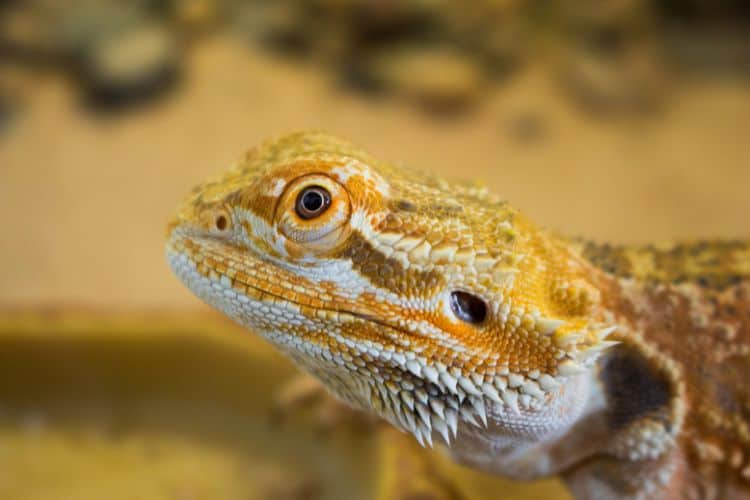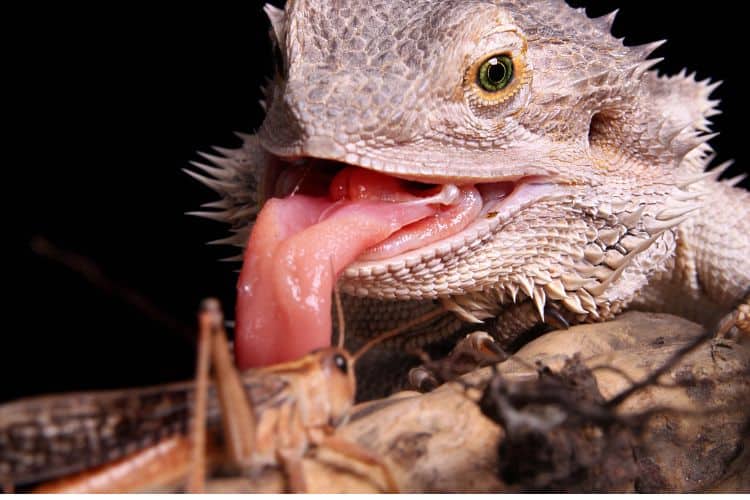For bearded dragon owners, brumation can be a concerning time. As these cold-blooded reptiles enter a dormant state similar to hibernation during the colder months, their behavior changes drastically.
They become less active, eat and drink less, and their bowel movements decrease or even stop completely. But is this normal? Should you worry if your bearded dragon doesn’t poop during brumation?
Why Bearded Dragons Don’t Poop During Brumation
Bearded dragons typically do not poop or eat at all during the brumation period. Their metabolism slows down dramatically, so they don’t need as much food or water.
They mainly just drink a bit of water every few weeks when they emerge from brumation to warm up their body temperature. As long as they appear healthy otherwise, lack of pooping or eating during brumation is perfectly normal at this time.

What Does Brumation Look Like for Your Bearded Dragon?
Brumation is a natural process where bearded dragons enter a dormant state similar to hibernation during the colder months. If your bearded dragon is brumating, you will notice some distinct changes in their behavior and appetite.
Decreased Activity and Increased Sleep
One of the most noticeable signs of brumation is that your bearded dragon will become much less active and sleep more. They may spend most of their time tucked away out of sight, only coming out briefly to drink or bask under their
Loss of Appetite
You will also notice your bearded dragon loses interest in food during brumation. They may eat very little or refuse food altogether for weeks or months during this period. This is normal since their bodies do not require as much energy.

Less Frequent Bowel Movements
With the decrease in eating comes a decrease in bowel movements. Your bearded dragon may go days or weeks without pooping during brumation since there is little or no food passing through their digestive system.
As long as they don’t appear constipated or strained, this is not a cause for concern.
How to Support Your Bearded Dragon During Brumation
Brumation can be concerning for first-time bearded dragon owners. But there are steps you can take to help your dragon transition smoothly and stay healthy through the process:
- Gradually decrease temperatures and light exposure in their habitat to mimic natural brumation conditions. Turn off UV and basking lights and lower the ambient temperature to around 65-75°F.
- Offer fresh, clean water daily. Hydration is important even when they are not eating. Gently drizzle or mist water near your dragon to encourage drinking.
- Provide a proper brumation hide, like a cave or enclosed hut. This gives them a dark, cozy space to sleep undisturbed.
- Spot clean the tank to remove droppings or uneaten food that could rot and make your dragon sick when they emerge.
- Check on your dragon every few days. Look for signs of dehydration, weight loss, or distress. Gently feel their belly – it should be soft, not hard.
- Offer bits of food like greens or veggies periodically to provide needed nutrients. But don’t force feed – let your dragon’s appetite guide how much they eat.
- Maintain proper calcium/vitamin supplements when they are eating. Their bones still need
calcium even when appetite is low. - Note start and end dates of brumation to help your vet monitor health.
- Gradually return tank conditions to normal when brumation ends. Slowly reintroduce light, increase temperature, and offer favorite foods.
FAQs
Do bearded dragons brumate with eyes open?
Yes, bearded dragons may keep their eyes open during brumation, though they may also periodically close them. Their eyes being open is not necessarily a cause for concern, but you should monitor their overall health and behavior.
Do baby bearded dragons brumate?
No, baby bearded dragons typically do not brumate. They usually need to be at least 1 year old before brumating. Babies don’t have enough body mass and brumation can be stressful and increase illness risks for them. Monitor babies closely for any unusual behavior or health issues.
Can I hold my bearded dragon during brumation?
It’s best not to handle or disturb your bearded dragon during brumation. The stress and change in temperature when handling them can potentially cause health complications. Let them rest undisturbed in their brumation hide until the process completes.
In Summary
In summary, brumation is a natural dormant state that bearded dragons enter during colder months. Signs include lethargy, not eating, and less bowel movements.
Support them by providing fresh water, proper temperatures and hides, and monitoring their health. Don’t force feed. Let the brumation run its course and gradually return to normal care when they emerge.
With the right habitat and monitoring, your bearded dragon can complete brumation safely.

